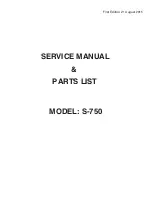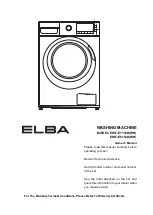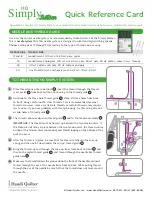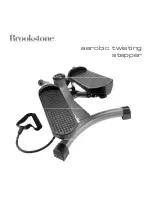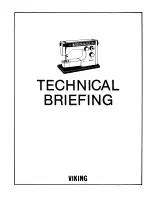
−
15
−
3-7 Properly installing the counter knife
The dimension of proper installation of the counter knife is as shown in Fig. 17. The standard distance from thread
guide for knife attached so that needle enters the center of window to the top end of counter knife blade is 0.5
mm.
At this time, a clearance of approximate
4 mm is provided between the center of
needle and the top end of counter knife
blade.
The top end of counter knife blade is 0.6
mm above the installing face. (Fig. 18)
Sharpness will change when installing
angle of the top end of counter knife blade
is changed. Sharpness is shown only
when cutting blade sections of counter
knife and moving knife are closely
engaged with each other.
When adjusting or replacing the counter
knife, be sure to check the sharpness and
adjust the installing angle of counter knife.
Counter knife can be installed by moving
to the right from the standard installing
position.
At this time, the feeding length of needle
thread and bobbin thread is lengthened
more not only as much as the moving
distance of knife than the standard time,
but also thread trimming timing is delayed.
As a result, the length of needle thread
remaining at the top end of needle is extra
lengthened. (Fig. 20)
For the synthetic thread, move counter knife to the right to delay thread trimming timing.
To completely adjust, however, it is also necessary to adjust thread trimmer cam timing.
(1)
(2)
(3)
0.5 mm
0.6 mm
Moving knife
Thread guide
for knife
Center of needle
Approx.
4 mm
Counter knife
Shorter
Longer
Length of thread after trimming
Fig. 17
Counter knife
Fig. 18
Bottom section of throat
plate (Machine bed)
When counter knife is
moved to the right
Moving knife
Hook
Thread take-up picker
Fig. 20
Moving knife
Counter knife
Fig. 19
To be center
Standard































